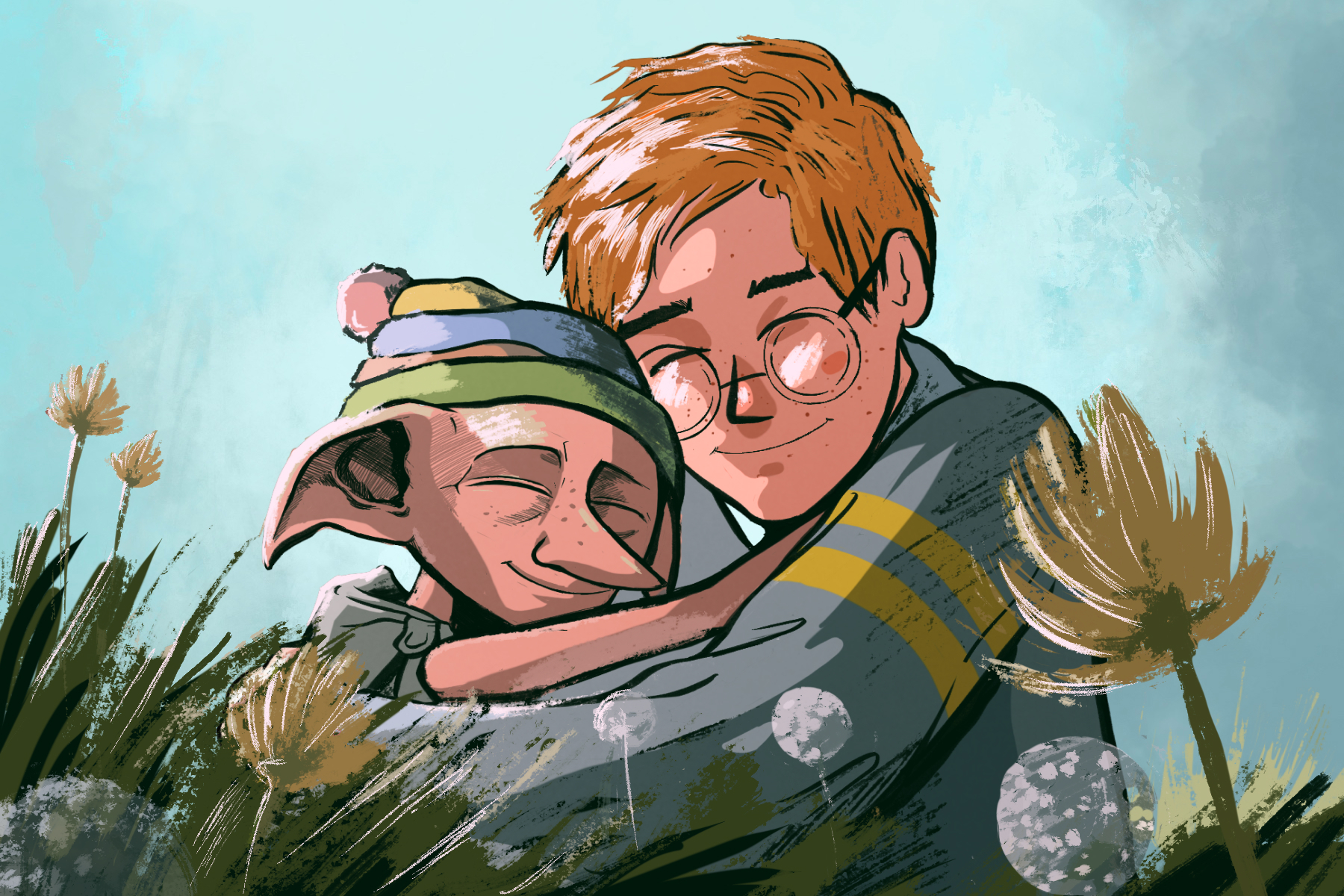If you have even a toe in the door of fandom (any fandom, really), you have probably come across the term “comfort character.” The term is everywhere: in Buzzfeed quizzes, Twitter imagines, dozens of Spotify playlists and Instagram fanposts. Like the name implies, it’s a fictional character in pop culture and media that people find comfort in, either through identifying with them or wishing to hang out with them like a best friend. For some, comfort characters are so real that even just thinking about them, rewatching their scenes, reading fan fictions or otherwise engaging with them can help stave off anxiety attacks, calm down during panic episodes, or simply provide a hand to hold on to during difficult times.
The typical comfort character might be someone fierce and protective of their friends, passionate about their ambitions and goals, or struggling with inner demons. Usually, they have characteristics that are easy to relate to or be inspired by. Or, it can be completely random — there’s no requisite in what makes a comfort character. It might be the plucky main protagonist, the tortured antihero or an innocuous supporting character. Whether they’re conquering a villain, avenging a fallen friend, or simply being happy, people find warmth in following along in their journey or seeing them smile in the face of their own tragedy.
everyone's comfort characters are either dead, gay, traumatized, or mass murderers
— ً (@pionawiz) September 9, 2021
For me, it’s Kurapika from the anime “Hunter x Hunter.” Kurapika has suffered immense tragedy and pain as the sole survivor of the Kurta clan, who were all murdered by the Phantom Troupe for the Kurtas’ rare scarlet eyes. Seeking vengeance for his fallen comrades, Kurapika signs up for the Hunter exam and there meets new friends and the other main characters (Gon, Killua and Leorio), who help him deal with his trauma and aid him in his journey. Kurapika is my comfort character in part because his strong determination and drive for revenge inspires me to have as strong of a passion in my own goals, and his episodes of loneliness, loss and grief resonate with how I feel at times. And when Kurapika shows one of his rare smiles, a little curl of happiness emerges in me, now that the character that I identify with has a moment that isn’t somber.
Comfort characters exist in part because many people don’t have parents, friends or other social resources that they can talk to or truly open up with. Frankie Lantican, in a Vice article, explained how she identifies with a character because of the character’s unconditional love for his family, something she wishes she personally had more of: “Once, when I broke down in front of my dad because of unbearable stress from school, all he said was that this wouldn’t be happening if I just prayed more. Not the words I wanted to hear. I love my parents but sometimes, I wish I could open up to them more.” And when she feels overwhelmed or stressed, she turns to her favorite episodes and clips as an escape from her anxieties and the equivalent of a reassuring hug.
Similarly, Mairany Garcia in The Unpublished Zine wrote about how she found solace in watching Peter Parker’s journey of finding his identity and self-worth in the movie “Spider-Man: Homecoming,” because she could relate to the feeling of believing you’re alone. “It may sound silly but the truth was that when I was alone and felt like I couldn’t talk to my friends, watching this movie let me identify with someone else’s struggles and follow them to the end of their journey — ultimately allowing me to find comfort in them,” wrote Garcia.
If you have a comfort character, or after reading this, you realize you do, take pride in it! According to Karen Dill-Shackleford, Ph.D., a psychologist and member of the Anxiety and Depression Association of America, having a comfort character can mean that you have above-average empathy and that you feel things more strongly. Shackleford explained, in an Refinery29 article, “You have to engage in a real human way in order to feel that connection. That’s probably a sign that you are capable of certain social things that you are willing to let yourself go and really feel something in the story.”
Studies have also shown how comfort characters can actually inspire and improve people. Researchers from Ohio State University coined the phenomenon “experience-taking,” in which people take the emotions from a story for their own. The researchers found that — albeit temporarily and in the right situations — readers could make real changes in their own lives. For instance, the researchers found that people became more likely to vote in a real election after strongly identifying with a fictional character who themselves overcame obstacles to vote.
That said, having a comfort character can be dangerous when the fantasy is too entrenched, and real-life reminders that the character isn’t real can be jarring and upsetting. Relying too much on these characters to help you get through difficult situations or piling all your emotions onto them leads to the risk of emotional and psychological harm, such as when the author kills off the character or when the real-world actor is nothing like the fictional character. In the case that the comfort character becomes the only source of comfort in one’s life, that can be a potentially unhealthy attachment and lead to disassociating from real-life experiences. In that case, if it turns from being one way to cope to being the only method, it could lead to long-term damage in the ability to form social relationships. An unhealthy coping mechanism is one where the behavior doesn’t resolve the problem and may actually increase the harm.
Comfort characters aren’t meant to be a replacement for actual therapy or addressing mental issues, even if they feel like they might help you in the short term. In the long run, comfort characters are simply a part of enjoying a show and finding pleasure in media and fiction.
Ultimately, if you’re engaging with your comfort characters in a healthy and sustainable way, it can be a secret and wonderful world, to give and get hope in the lines between fiction and reality.


















You’re thoughts are amazing. You’ve put a big question mark on this industry
yes, you’re right we should not take these charcters to heart. It may cause stress when a character dies